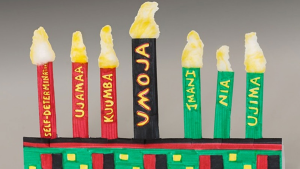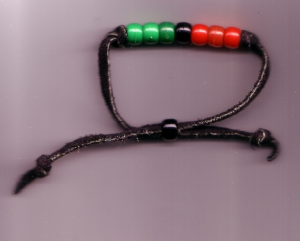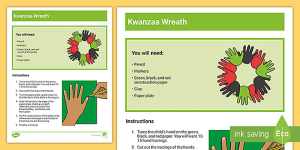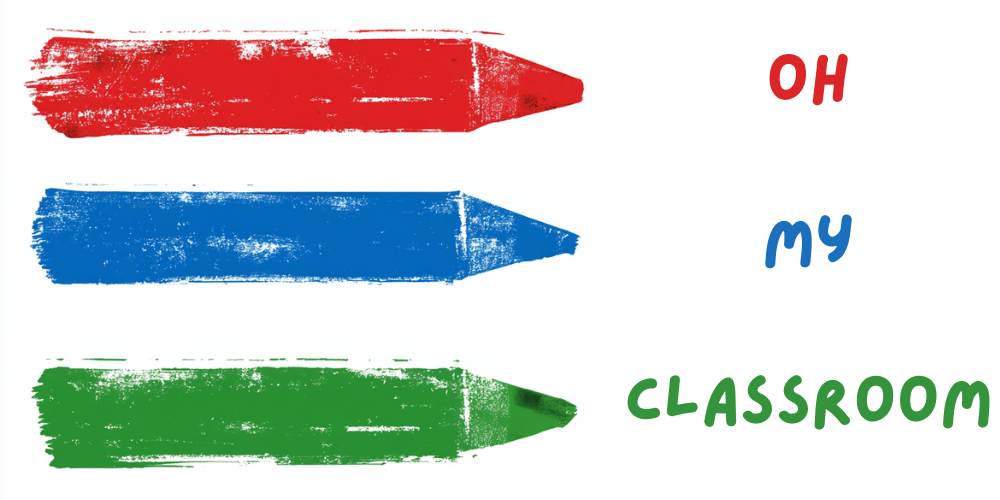Kwanzaa is a cultural holiday that celebrates African heritage, unity, and community. It is a week-long celebration that begins on December 26th and ends on January 1st.
If you are looking for ways to introduce your preschoolers to Kwanzaa, there are many fun and engaging activities you can incorporate into your lessons or home celebrations.
We will share Kwanzaa activities for preschoolers that are sure to inspire curiosity and excitement.
From making traditional Kwanzaa crafts to learning about African traditions and storytelling, these activities will help your little ones celebrate Kwanzaa in a meaningful and memorable way.
Kwanzaa Kinara Craft:

The Kinara is a traditional candle holder used during Kwanzaa to represent the seven principles. Help your preschoolers make their own Kinara using materials such as cardboard tubes, construction paper, and paint. Have them paint each tube a different color to represent each principle, and then glue them together in a row. Add candles (either real or battery-operated) to complete the Kinara. This activity can be a great opportunity to talk about the principles of Kwanzaa and the importance of unity and community.
Kwanzaa Feast:

Kwanzaa is a time for feasting and sharing food with family and friends. Help your preschoolers create a pretend feast by setting up a play kitchen or table with play food. Encourage them to take turns being the chef and serving the food to their friends or family members. You can also introduce traditional Kwanzaa foods such as sweet potatoes, collard greens, and black-eyed peas.
Related: 20 Exciting Matching Activities for Preschoolers
Kwanzaa Storytelling:

Storytelling is an important part of African tradition and can be a great way to introduce preschoolers to Kwanzaa. Gather a group of children and read Kwanzaa-themed books or tell stories about African heritage and culture. You can also encourage the children to create their own stories and share them with the group.
Kwanzaa Drumming:

Drumming is an important part of African culture and can be a fun and engaging activity for preschoolers. Provide the children with small hand drums or percussion instruments and encourage them to create their own rhythms. You can also play traditional African music and encourage the children to dance and move to the beat.
Kwanzaa Unity Bracelets:

Help your preschoolers make their own Unity bracelets using beads and string. Have them choose beads in the colors of the Kwanzaa flag (red, green, and black) and string them together to create a bracelet. Talk to the children about the importance of unity and how the different beads represent the different parts of the community coming together. This activity can be a great way to reinforce the principles of Kwanzaa and encourage teamwork and collaboration among the children.
Related: 20 Exciting Groundhog Day Activities for Preschoolers
Kwanzaa Coloring Pages:

Provide your preschoolers with coloring pages that feature Kwanzaa symbols and images. This activity can be a fun and relaxing way to introduce the holiday and its traditions. You can find Kwanzaa-themed coloring pages online or create your own using markers, crayons, or colored pencils.
Kwanzaa Fruit Salad:

Kwanzaa is a time for celebrating the harvest and enjoying fresh fruits and vegetables. Help your preschoolers make a fruit salad using seasonal fruits such as apples, oranges, and pears. Talk to them about the importance of healthy eating and how food is a way to celebrate and connect with the community.
Kwanzaa Flag Craft:

The Kwanzaa flag is an important symbol of the holiday and represents the unity of the African diaspora. Help your preschoolers make their own Kwanzaa flags using construction paper and markers. Have them draw the three colors of the flag (red, green, and black) and talk to them about the symbolism of each color.
Kwanzaa Memory Game:

Create a Kwanzaa-themed memory game by printing out pictures of Kwanzaa symbols and principles. Cut out each picture and place them face down on a table. Encourage the children to take turns flipping over two cards at a time and trying to match the pictures. This activity can help children develop memory skills and learn more about the holiday.
Kwanzaa Dance Party:

End your Kwanzaa celebration with a dance party featuring African music and rhythms. Encourage the children to dance and move to the beat, and talk to them about the importance of music and dance in African culture. This activity can be a fun and energetic way to wrap up your Kwanzaa celebration and leave your preschoolers feeling joyful and connected.
Kwanzaa Wreath Craft:

Help your preschoolers create their own Kwanzaa wreath using materials such as construction paper, tissue paper, and ribbon. Have them cut out and decorate symbols of Kwanzaa such as candles, fruits, and the Kinara, and then glue them onto a wreath base. Hang the wreaths around the classroom or at home to decorate for the holiday.
Kwanzaa Song and Dance:

Introduce your preschoolers to traditional Kwanzaa songs and dances. Play music and encourage the children to sing along and move to the beat. This activity can help children learn about African culture and traditions and get them excited about celebrating Kwanzaa.
Kwanzaa Memory Book:

Create a Kwanzaa memory book with your preschoolers to help them document their experiences and learning during the holiday. Provide them with materials such as scrapbook paper, markers, and stickers, and encourage them to create pages that showcase their favorite activities, traditions, and memories from the week.
Kwanzaa Candle Ceremony:

The lighting of the candles is an important part of Kwanzaa. Help your preschoolers create their own Kwanzaa candle ceremony by using battery-operated candles to represent the seven principles. Have the children take turns lighting each candle and talking about what the principle means to them. This activity can be a meaningful way to reinforce the principles of Kwanzaa and promote reflection and discussion.
Kwanzaa Marketplace:

Set up a pretend marketplace with items that represent different aspects of African culture and tradition. Encourage the children to explore the marketplace and engage in pretend play as buyers and sellers. This activity can be a fun way to introduce preschoolers to African history and culture and promote creativity and imagination.
Kwanzaa Book Reading:

Read books to your preschoolers that celebrate Kwanzaa and the principles it represents. Choose books that are age-appropriate and engaging, and talk to the children about the themes and messages in each story. This activity can help children develop their language and literacy skills while learning more about the holiday.
Kwanzaa Drum Circle:

Gather some drums and percussion instruments and have a Kwanzaa drum circle with your preschoolers. Play African rhythms and encourage the children to join in with their own instruments or through clapping and singing. This activity can be a fun way to explore African music and promote cooperation and collaboration.
Kwanzaa Collage Art:

Help your preschoolers make Kwanzaa-themed collages using materials such as colored paper, beads, and fabric. Have them cut out and arrange images that represent Kwanzaa principles, such as unity, creativity, and faith. Display the collages around the classroom or at home to showcase the children’s creativity and promote discussion about the holiday.
Kwanzaa Puzzle Fun:

Create Kwanzaa-themed puzzles by printing out images of Kwanzaa symbols or principles and cutting them into puzzle pieces. Encourage the children to work together to put the puzzle back together and talk to them about the meaning behind the symbols and principles. This activity can help children develop problem-solving and critical thinking skills while learning about the holiday.
Kwanzaa Snack Time:

Have a Kwanzaa-themed snack time with your preschoolers by serving foods that are traditionally eaten during the holiday, such as sweet potato pie, cornbread, or bean dishes. Talk to the children about the importance of sharing food and coming together as a community during Kwanzaa. This activity can be a tasty way to reinforce the values and traditions of the holiday.
